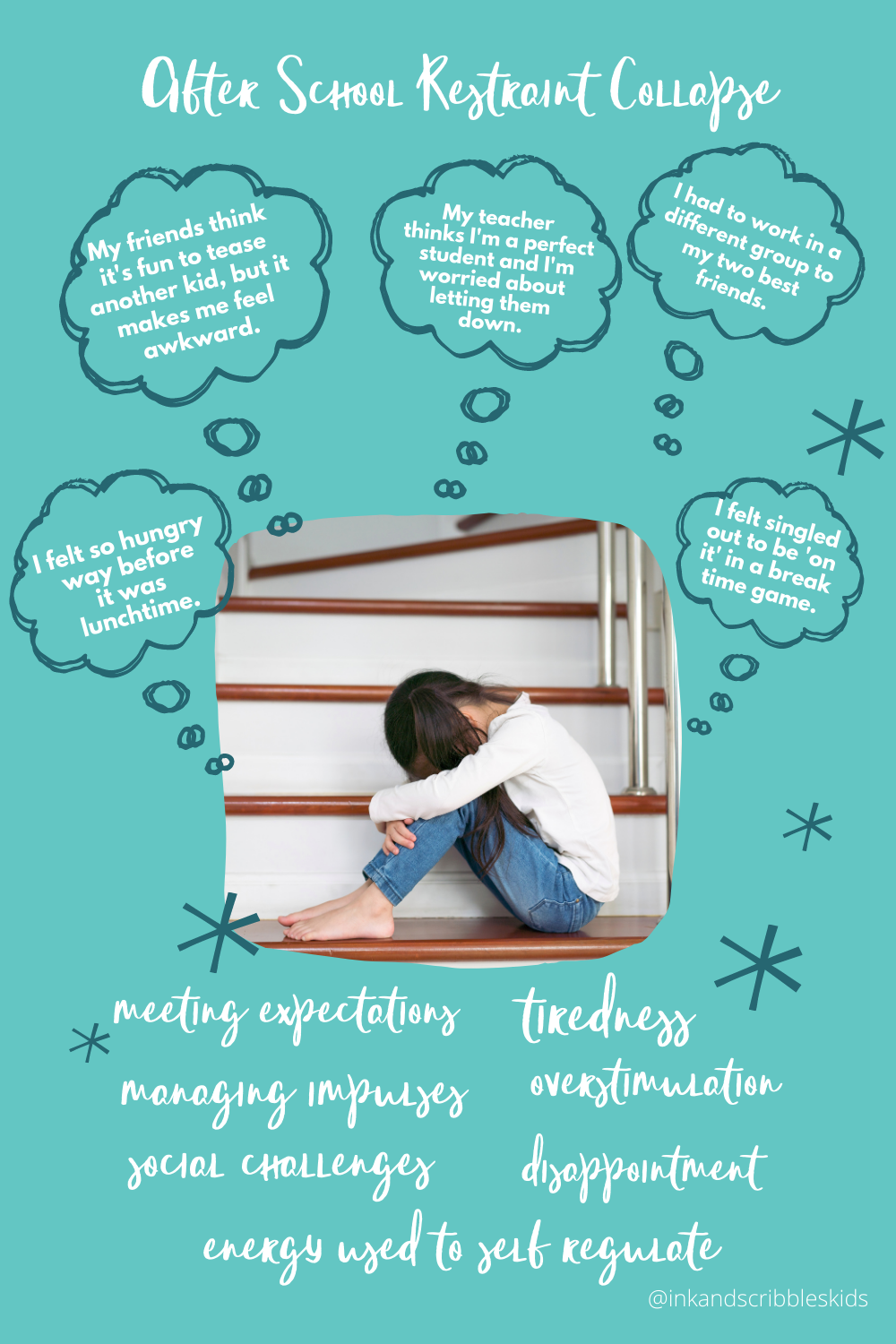When we, as parents, take our own feelings out the equation and look through our child's eyes, it's easy to see why After School Restraint Collapse is an actual thing. When children are at home with parents, they feel secure enough to express themselves emotionally as well as having the ability to act on impulses such as hunger, toilet needs or physical movement. At school, there are restrictions on them and rules to adhere to, as well as navigating relationships with peers and teachers. And all these things they manage on their own, without their main caregivers! Some children appear to manage this well. but the energy it takes them to do so can overwhelm them, leading to restraint collapse. Sensitive children or those with higher levels of emotional needs are more likely to be impacted.
With a Highly Sensitive Child in our house, we're no strangers to restraint collapse! It's loud and if I'm not prepared for it, can be extremely emotionally challenging. Here's some of the main reasons your child could experience after school restraint collapse:
When you think about it, it probably wouldn't surprise you to know that some children experience many , if not all of these in one day. And if you take the time to think about your own child's personality and typical school day experience, you'll be able to pick out which type of restraint may lead to their own after school collapse. So, how can we help our children at the end of the day? We might understand they feel pretty emotional after a school day, but ideally, we want to teach them how to manage their overwhelm. Here's some suggested things you can do:
Our little people are amazing, aren't they! When you think about what they experience during 6 hours without us, it's no wonder they release so much emotion when they come back to us. Don't take it personally. You've done nothing wrong. It might feel like they're pushing you away, but you're actually just the thing they need.
0 Comments
Leave a Reply. |
Categories
All
Archives
April 2024
AuthorHey! I'm the founder, creator and voice of Ink and Scribbles. Sharing thoughts on child well-being and parenting that are based on my teaching and parenting experience, and NLP learning. |


 RSS Feed
RSS Feed